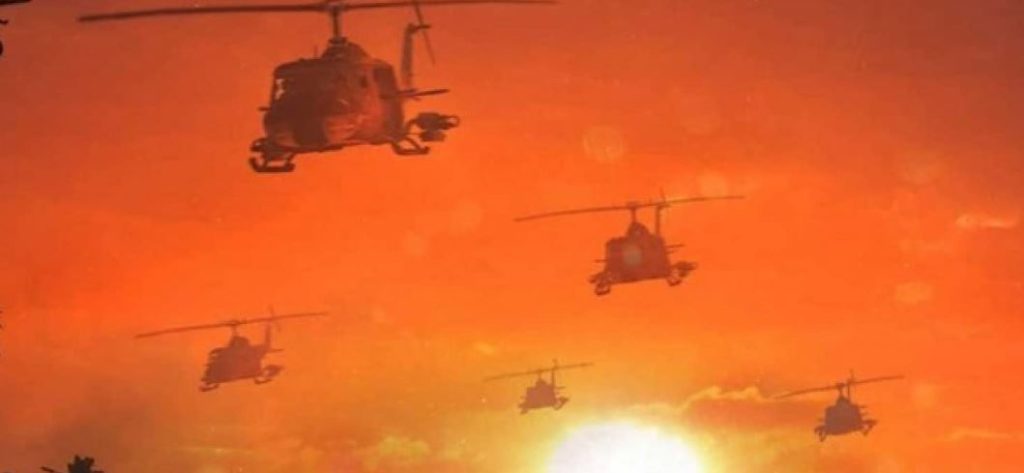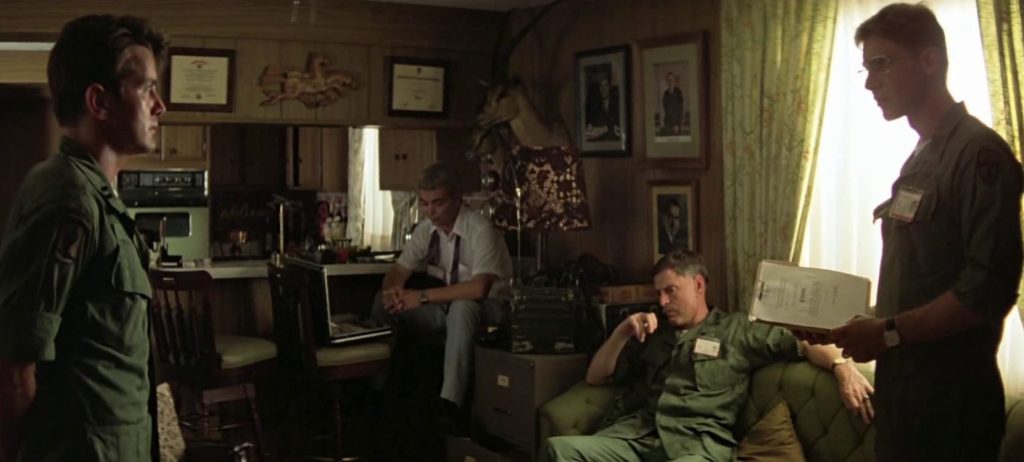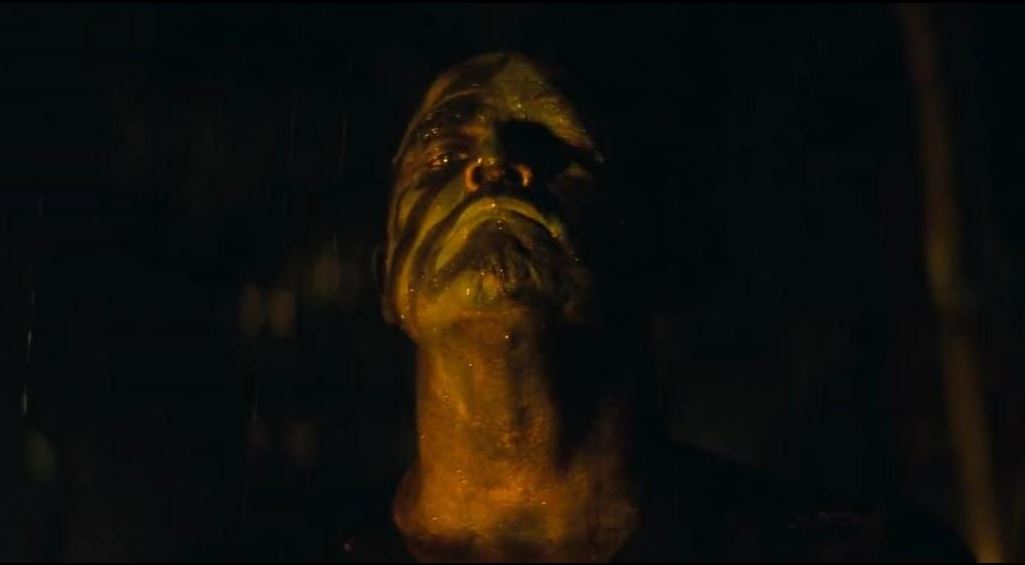It’s always a mystery when a gargantuan talent falls off a cliff. How can an auteur like Coppola, a man who ruled the cinematic landscape of the seventies by combining searing art with the most fantastic consistency, fail to make another great movie after 1979? A mesmerizing gift can’t just evaporate, can it? I mean, how is it possible to go from the staggering triumph of Apocalypse to the artsy-fartsy incoherence of One from the Heart in a mere three years? What was all that mumbling avant-garde shit about in Rumble Fish? Why did he think Richard Gere playing the trumpet surrounded by minimal violence would result in a worthy gangster flick?
Why send Kathleen Turner back to a fifties high school when Michael J. Fox had already done it a year earlier? Surely it was naive to think Tucker’s mundane car-building dream was ever gonna be in the same league as Don Corleone’s twisted take on the American Dream. And why tackle the most famous vampire story of all (in a genre you have no affinity with) when it’s already been told a hundred times, especially if Keanu Reeves is one of your main weapons?
Hell, perhaps an explanation for such a steep decline can be boiled down to a straightforward but depressing truth: artists (great, famous or otherwise) only have so much good stuff in them.

No matter for the endlessly watchable Apocalypse will forever stand testament to Coppola’s ability to get things fucking well right. Just look at its opening sequence in which the flick’s trippy feel is masterfully established by a static shot of the impenetrable jungle accompanied by the woozy, slowed-down beat of chopper blades. Then we get snatches of landing gear zooming past, tendrils of smoke, and the palm trees exploding into a wall of yellow flame as Jim Morrison croons this is the end. Sheen’s upside-down, spaced-out, half-transparent face floats into view and those chopping blades turn into a whirring ceiling fan in a Saigon hotel room, immediately blurring reality, memory and nightmare.
Five minutes later a disorientated, bloodied Sheen is cleaned up and hauled away from his bout of cabin fever only to be handed a top-secret mission to assassinate Colonel Kurtz (Brando), an outstanding, highly-decorated American officer. He listens spellbound to a tape of this insane renegade (who has crossed into Cambodia and become a demigod to the natives) revealing that his continued survival is now akin to a snail slithering along the edge of a straight razor.
“He’s out there operating without any restraint, totally beyond the pale of any acceptable human conduct…” Sheen is told by his commanding officers. “Terminate with extreme prejudice.”
That, me old muckers, is how to start a goddamn movie.

Coppola then leads us upriver into insanity, a smoke-obscured world full of strewn bodies and severed heads where you can meet your end at the tip of a spear or the claws of a tiger. Like Paths of Glory and The Thing, it’s an unapologetically male world. Here women only exist to be ogled, fought over or shot. Surreal touches abound like playing cards being tossed onto corpses while a soldier in the midst of a burning village tells the scrambling Vietnamese through a bullhorn: “We are here to help you.”
Soon our ‘errand boy’ Sheen meets the imperious Lieutenant Colonel Kilgore (Duvall), an arrogant surfing fanatic with an attention deficiency disorder and an indifference to nearby explosions. Striding untouched through the chaos, he radiates a ‘weird light’ while waxing lyrically about napalm. His ‘boys’ are needed to smash past a VC-held river mouth to enable Sheen’s gunboat crew to navigate the next part of their Stygian journey. Indeed, it’s this unforgettable segment that underlines Coppola’s genius for compelling spectacle. Choppers fly in low formation over the azure ocean to the stirring sound of Wagner before unleashing a devastating arsenal that sees hissing rockets destroy huts and bridges while heavy caliber machine gun fire mows down anything that moves. It’s a demented but beautiful picture of indiscriminate slaughter that’s about as exhilarating as filmmaking gets.
Sheen can only reflect: “If that’s how Kilgore fought the war, I began to wonder what they really had against Kurtz.”
By this point we’ve also been fed a great deal of information about Kurtz, anecdotes that underline this Green Beret’s intelligence, bravery, verve, ruthlessness and fierce individuality. He’s already become a near-mythical figure, a bogeyman with a silver eagle that appears to possess the ability to transmit his peculiar brand of madness to those around him. By the time an hour’s passed, Sheen’s evaluation of his nemesis is bordering on admiration.

Perhaps it would be impossible for any actor to capture Kurtz’s genius-malevolence in this alternative universe, but Coppola did his best by casting Brando. Shame the guy turned up bald and badly out of shape. You sense that Kurtz spends so much time skulking in the shadows in his half-ruined temple because Coppola is a bit embarrassed to reveal him. This is a super soldier, a madman par excellence? Like Jabba the Hutt you do wonder how he got himself into such a position of supreme power. I mean, reading poetry aloud is not frightening or profound. In fact, why does anyone take notice of this fat, mumbling fuck? It would be more fitting to find him having built Cambodia’s first McDonald’s rather than presiding over a rain-lashed, fly-buzzing kingdom filled with gun-toting children, piles of skulls, strung up bodies and the ‘smell of slow death’, but I guess that would’ve taken too much effort.
There are other criticisms to be made, such as Coppola heavily borrowing the river journey from Aguirre, Wrath of God, nicking Kilgore’s fondness for battle-entering music from the Sherman tank commander Oddball in Kelly’s Heroes, and failing to tone down the somewhat redundant Hopper as a manic sycophantic hippy photographer. Still, such objections are mere niggles and perhaps it’s fairer to argue that Coppola greatly built on what went before. The hypnotic Apocalypse is the work of an artist at the peak of his powers, complemented by Sheen’s sick-to-the-pit-of-his-guts voiceover, superb cinematography, and a hallucinatory depiction of savage conflict that not even Kubrick could match.
Dave Franklin’s movie book Go Fuck an Iceberg! is available from Amazon and other outlets.